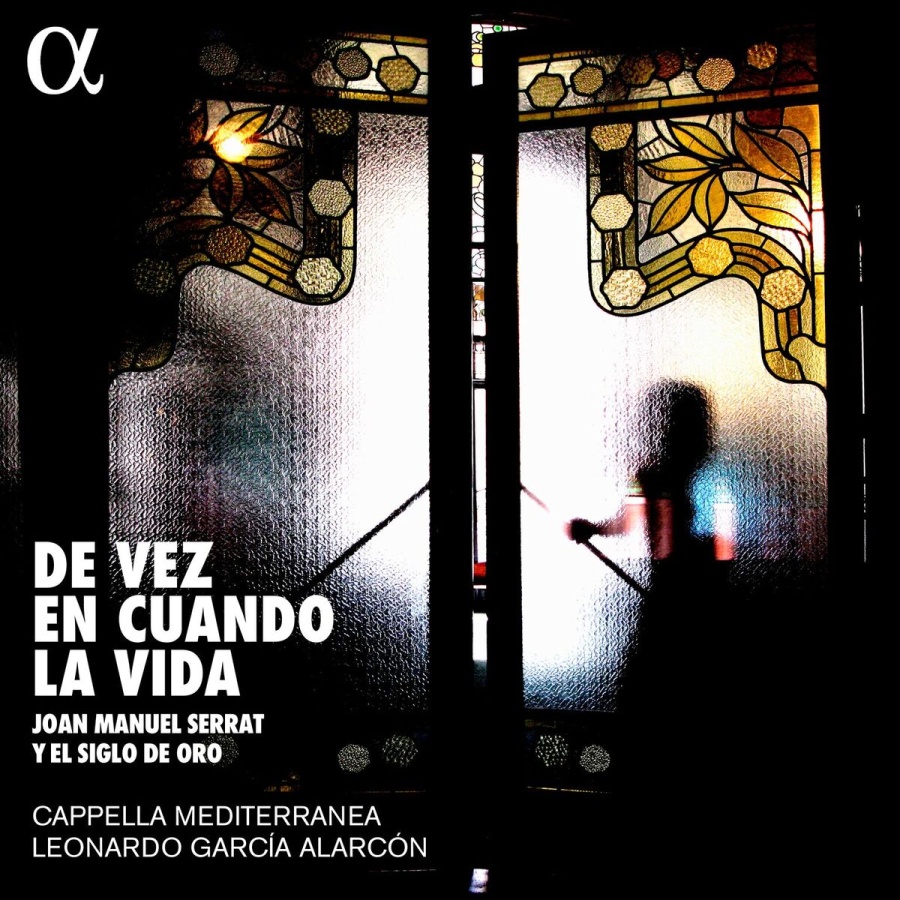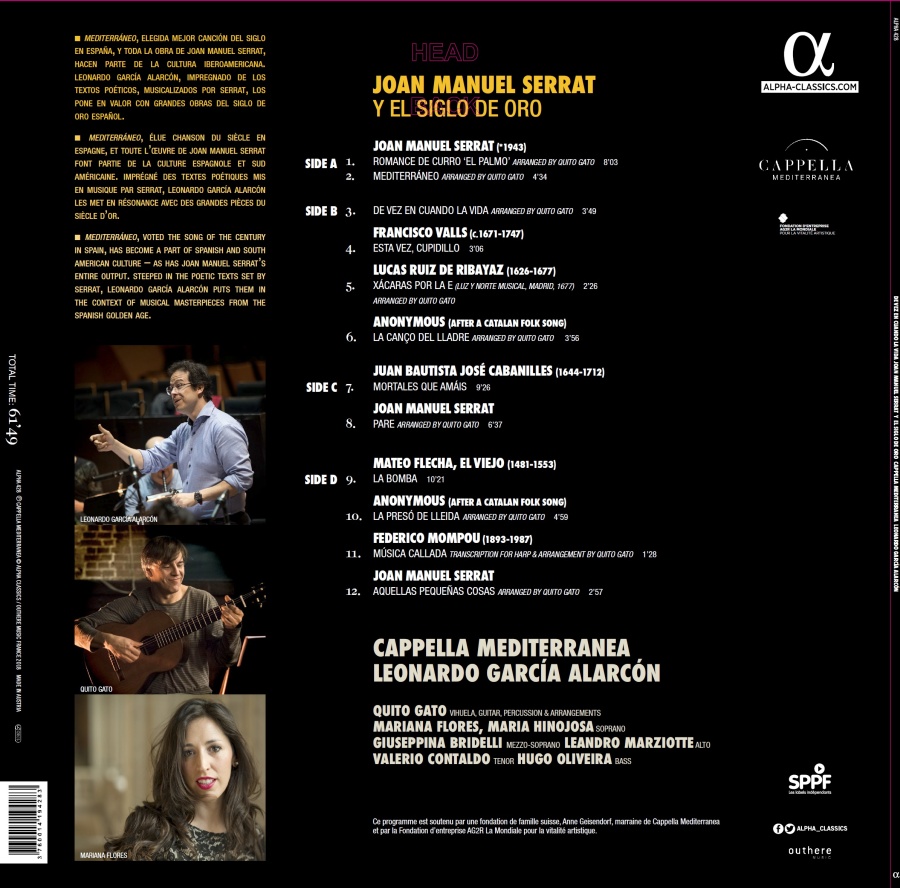
classical music distribution


(Produkt nie został jeszcze oceniony)
kompozytor
Mompou, Frederic;
Valls, Francesco
tytuł
De vez en cuando la vida
wykonawcy
Cappella Mediterranea;
Garcia Alarcón, Leonardo
Garcia Alarcón, Leonardo
nr katalogowy
Alpha 428
opis
Leonardo García Alarcón writes: “The memories of my childhood in Argentina always bring me back to the singer-songwriter Joan Manuel Serrat, synonymous with shared family moments… Serrat’s poetry and music around a barbecue in Argentina; “De vez en cuando la vida” made me cry as it has made millions of people cry in Latin America, Spain and elsewhere… Joan Manuel Serrat is part of our life, he is our Jacques Brel!... Or, if we project ourselves back to the sixteenth century, he is in a sense our little Camerata Fiorentina, that movement of Italian poets and musicians in Florence. Serrat has allowed the whole of Latin America and Spain to reappropriate the works of its poets… He has also been synonymous with freedom and the struggle against dictatorial regimes. His song “Mediterraneo” is one of the emblematic pieces of his career. It is almost a hymn that has special resonance nowadays… I asked my good friend Quito Gato to arrange these songs for our ensemble, Cappella Mediterranea. The orchestration retains typical seventeenth-century instruments: recorders, cornett, violins, viola da gamba, cellos, lutes, harp, harpsichord, organ, with some percussion and a double bass. These period instruments allow us to travel back in time and compare Serrat’s romances with the Ensaladas of Mateo Flecha (1481-1553), the polyphony of Guillaume Dufay, and a composition by Juan Cabanilles that recalls a Bach Passion. The Xacaras, a satirical genre from the Spanish Golden Age dialogues with Serrat’s works, as does the Música callada of the Catalan composer Frederic Mompou, transcribed here for the harp.”
nośnik
Vinyl
x 2
gatunek
Muzyka klasyczna
producent
Alpha
data wydania
04-10-2018
EAN / kod kreskowy
3760014194283

(Produkt nie został jeszcze oceniony)
cena 149,00 zł
lubProdukt na zamówienie
Wysyłka ustalana indywidualnie.
Darmowa wysyłka dla zamówień powyżej 300 zł!
Darmowy kurier dla zamówień powyżej 500 zł!
sprawdź koszty wysyłkiProduktu jeszcze nie zrecenzowano, chcesz być pierwszy?
Klienci, którzy kupili ten produkt, kupili również
Liszt, Franz
LISZT: Schubert Song Transcriptions, Vol. 1 (Liszt Complete Piano Music, Vol. 5)
8.553062
Mozart, Wolfgang Amadeus
Mozart: Pearls from Paris, Sonatas for piano and violin K. 301 - 306
ANA 101
Grieg, Edvard
Grieg: Song of Norway - Music of Edvard Grieg, Adaptation and lyrics by Robert Wright & George Forrest
8.120879
Albéniz, Isaac
Albeniz: Piano Music Vol. 7 - 12 Piezas características; Sonata No. 3
8.573160
Pozostałe płyty tego kompozytora
Pozostałe płyty tego wykonawcy
różni kompozytorzy, Monteverdi, Claudio, Piazzolla, Astor
Claudio Monteverdi & Astor Piazzolla: Una Utopia Argentina - madrygały i tango
AMY 034
Zamboni, Giovanni
Zamboni: Ulisse all’Isola di Circe, Drama musicale (Bruxelles, 1650)
RIC 342
Napisz recenzję dla: De vez en cuando la vida
Zapytaj o dostępność produktu
Twoje zapytanie:
Odpowiemy na adres:
Produkt został dodany do koszyka

Mompou, Frederic, Valls, Francesco
De vez en cuando la vida
1 szt










































